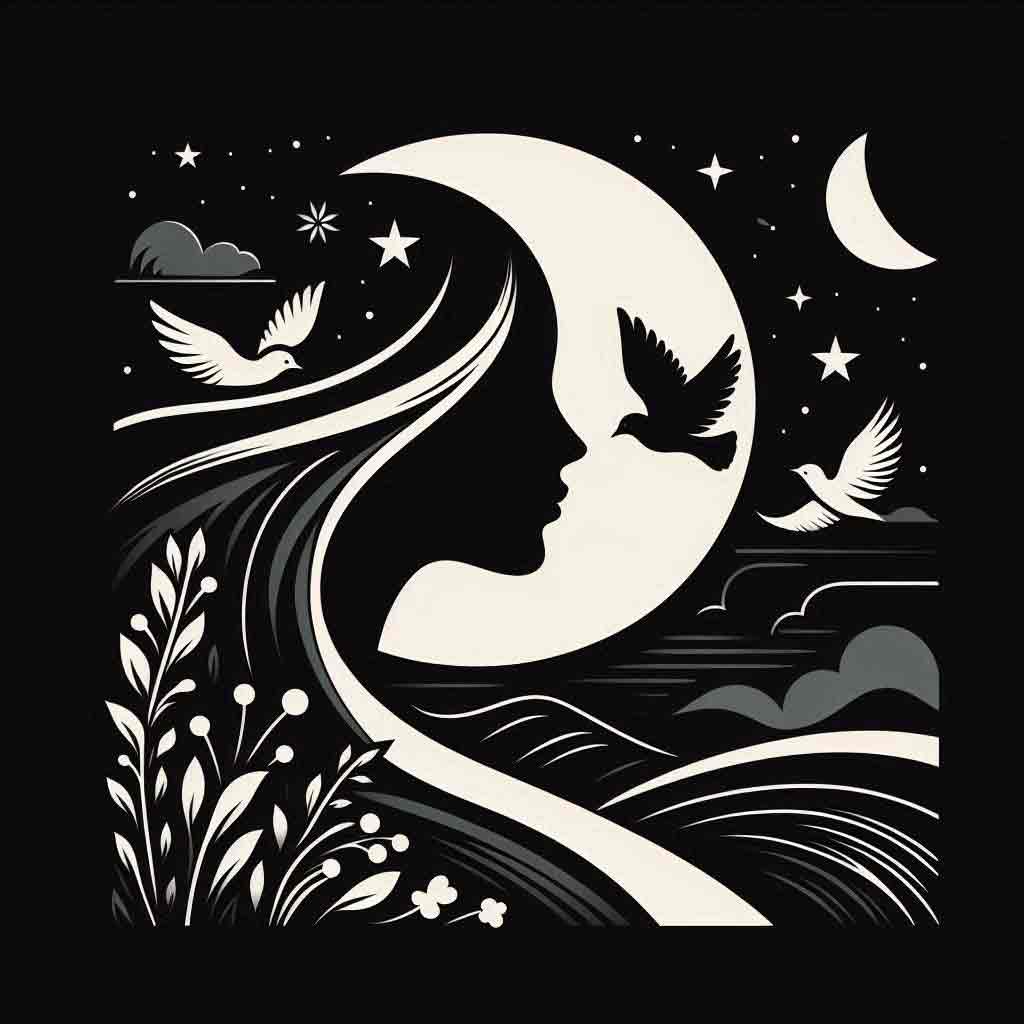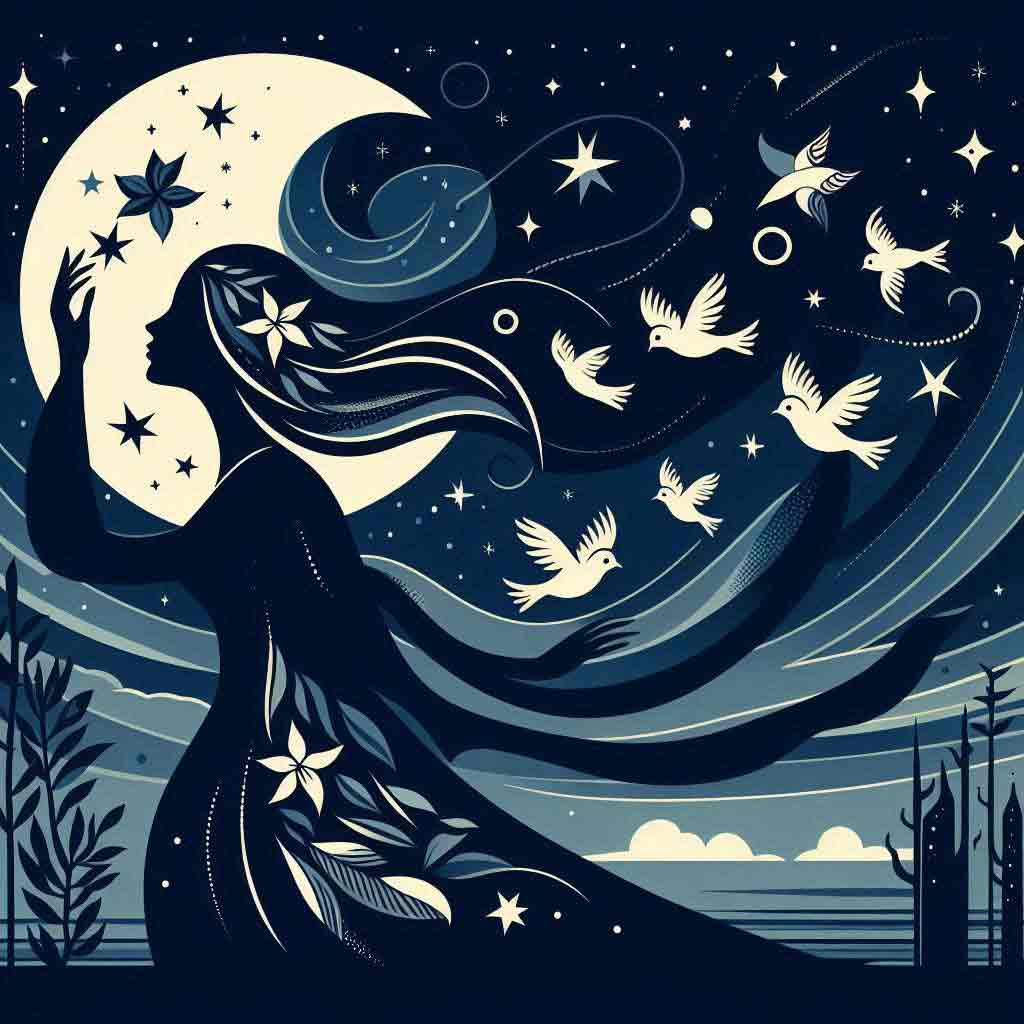
Nocturne
one step after another
on the way back home—
the moon keeps watch
The poem was written on August 31, 2024. Its visualization was later imagined by DALL-E and Microsoft Designer, with the birds added as a touch of creative liberty.
This is an image of a slow, contemplative walk home under the moonlight. Even though the word itself doesn’t appear, this is unmistakably a night poem. The act of walking, which everything revolves around here, sets a rhythm. And before you know it, we find ourselves thinking about music.
What is a Nocturne?
A nocturne is a musical piece that seeks to capture the calm and often melancholic mood of the night. It is characterized by soft, flowing melodies, typically played at a slow tempo. Simple in structure, it is designed to create an introspective and soothing atmosphere. Most nocturnes are composed for the piano, with an emphasis on a clear, singing melody supported by a harmonious accompaniment.
These compositions became especially popular in the 19th century. They convey a sense of tranquility and contemplation, making them perfect for the evening or nighttime. In literature, the term can also describe works that evoke a nocturnal scene or mood. Though rare, I’ve chosen to apply it here.
A nocturne is like a musical creation that pierces the silence and gently lays itself upon the darkness. It’s a melody that dances among the stars and captures the stillness of twilight, as the moon bathes the world in its gentle light. A nocturne shimmers like dew on the leaves of a garden that exists only in dreams, telling stories that can only be heard in the stillness of the night.
It is a delicate composition, wrapping the soul like a soft cloth and transporting us to a world where time slows down and thoughts become gentler. Am I exaggerating? In a nocturne, we hear the echo of the day, but it feels like a distant call, gently leading us into the realm of dreams. It’s music that illuminates the shadows of the night, reminding us that beauty and comfort can be found in the darkness.
No article on nocturnes would be complete without mentioning Frédéric Chopin, who composed twenty-one of these night pieces between 1827 and 1846. My favorite? Opus 27 No. 2 in D-flat major (YouTube). A piece full of beauty and unexpected dissonances.

